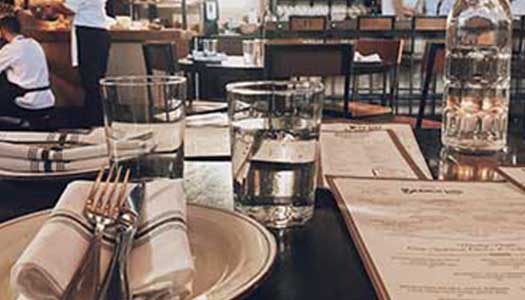When navigating the recovery journey, financial stability in recovery is key for long-term success. Often overlooked, the impact of dining decisions at retreats can significantly affect one’s budget. By consciously selecting where and what to eat, individuals not only save money short-term but also cultivate sustainable financial habits aligned with their recovery goals. The benefits of wise dining choices extend beyond the retreat, showcasing a comprehensive approach to financial wellness that can be truly transformative for those on the path to recovery.
Key Takeaways
- Opt for accommodations with kitchen facilities to cook and save on dining expenses.
- Pack snacks to avoid costly resort food and maintain budget discipline.
- Research nearby affordable dining options to enjoy meals without overspending.
- Share meals with others to split costs and make dining at retreats more affordable.
- Implementing budget-friendly dining tips ensures long-term financial well-being.
Understanding Financial Challenges in Recovery
Tackling financial challenges in recovery requires a thorough understanding of the economic obstacles that individuals face during their journey towards financial stability. From managing debts to rebuilding credit, the path to financial wellness demands strategic planning and disciplined decision-making. By recognizing these hurdles and implementing effective solutions, individuals can navigate the complexities of financial recovery and pave the way towards long-term stability.
Impact of Dining Choices on Budget
Understanding the impact of dining choices on one’s budget is a fundamental aspect of achieving financial stability in recovery. By carefully evaluating meal options at retreats, individuals can make informed decisions that align with their financial goals. Selecting cost-effective dining choices can help control expenses, allowing for a more sustainable financial plan during the recovery process. Making conscious dining decisions can positively influence overall budget management and long-term financial well-being.
Budget-Friendly Dining Tips at Retreats
Efficiently managing dining expenses at retreats is essential for individuals seeking to achieve financial stability in recovery. Opt for accommodations with kitchen facilities to prepare meals, pack snacks to avoid pricey resort food, and research nearby affordable dining options. Additionally, consider sharing meals with fellow retreat attendees to split costs. By implementing these budget-friendly dining tips, individuals can maintain financial discipline while enjoying their retreat experience.

Maximizing Savings Through Smart Choices
To enhance financial stability in recovery, individuals can strategically optimize their savings through wise decision-making when it comes to dining choices at retreats. By selecting cost-effective meal options, avoiding unnecessary add-ons, and choosing meal plans that offer the best value for money, retreat attendees can make significant savings without compromising on the quality of their dining experience, ultimately contributing to their overall financial well-being.
Long-Term Financial Wellness Strategies
To sustain financial stability in recovery over the long term, individuals should implement proactive financial wellness strategies that extend beyond immediate cost-cutting measures at retreats. Long-term financial wellness strategies may include creating a budget, setting financial goals, building an emergency fund, investing in assets, and consistently monitoring and adjusting financial plans. These strategies help individuals maintain stability, achieve financial growth, and secure their future beyond recovery.
Frequently Asked Questions
How Can I Maintain Financial Stability While Focusing on Recovery?
Maintaining financial stability while focusing on recovery involves creating a budget, tracking expenses, exploring income-generating opportunities, and seeking financial counseling. By prioritizing financial wellness alongside recovery efforts, individuals can achieve stability and long-term success.
Are There Specific Dining Choices That Can Help Me Save Money?
Incorporating cost-effective dining choices can indeed help you save money. By opting for budget-friendly options like meal prepping, buying in bulk, and focusing on nutritious yet affordable ingredients, you can maintain financial stability while prioritizing your recovery journey.
What Are Some Practical Tips for Dining on a Budget at Retreats?
When dining at retreats on a budget, opt for cost-effective meal options like local produce, bulk items, and simple recipes. Prioritize nutritious foods, plan meals in advance, and consider sharing expenses with fellow attendees to maximize savings without compromising on quality.
How Can I Make Smarter Choices to Maximize My Savings?
To maximize savings, consider meal planning, buying in bulk, opting for simple ingredients, cooking at home, and utilizing leftovers creatively. Embrace budget-friendly options, prioritize needs over wants, and track expenses diligently for financial success.
What Long-Term Financial Strategies Should I Consider for Wellness?
When considering long-term financial strategies for wellness, it is essential to prioritize saving and investing in assets that can generate passive income. Diversifying your portfolio, creating an emergency fund, and seeking professional financial advice are key steps.
Conclusion
To sum up, making wise dining choices at retreats greatly contributes to achieving financial stability during the recovery process. By implementing budget-friendly dining tips, individuals can control expenses, maximize savings, and support long-term financial wellness. These strategies not only aid in immediate cost management but also foster conscious spending habits and align with overall financial goals. Prioritizing financial discipline in dining choices is essential for maintaining financial stability throughout the recovery journey.
Also Read: High Tea Menu Ideas for Event Catering




